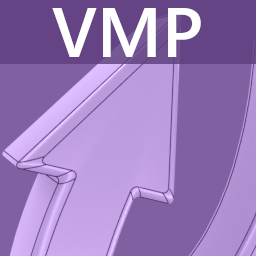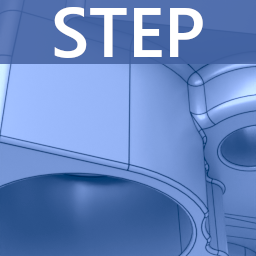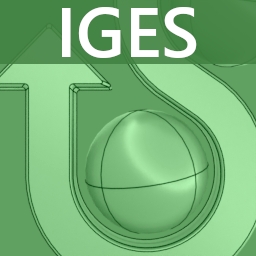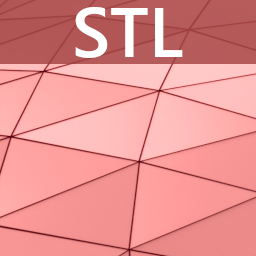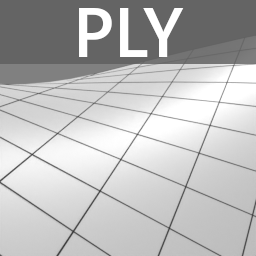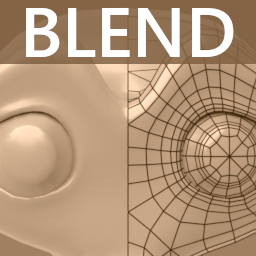The integration of various software tools into the planning process at some point always requires the import and export of geometric model data. Visiometa provides interoperability with CAD systems, simulation tools and other relevant applications, by supporting the most popular data exchange formats. Our goal is to make exchange operations run smoothly and safe, regardless of data size, model quality or different units of measurement. For this purpose we use a full-featured modeling kernel and a number of specialized conversion algorithms. The expansion of supported open and proprietary file formats will remain an ongoing effort for us.

When importing external data, shape healing and filtering techniques can be optionally applied to improve the fidelity of the obtained geometric objects. This is particularly useful when dealing with older file formats or repeatedly converted models. The semantic composition of CAD data containing multiple entities is maintained by separating or compounding shapes upon conversion. Visiometa's own neutral data format is capable of storing both boundary representation as well as tesselated mesh data. The user can also decide to inhibit further export of certain models from a project file to meet potential confidentiality requirements.
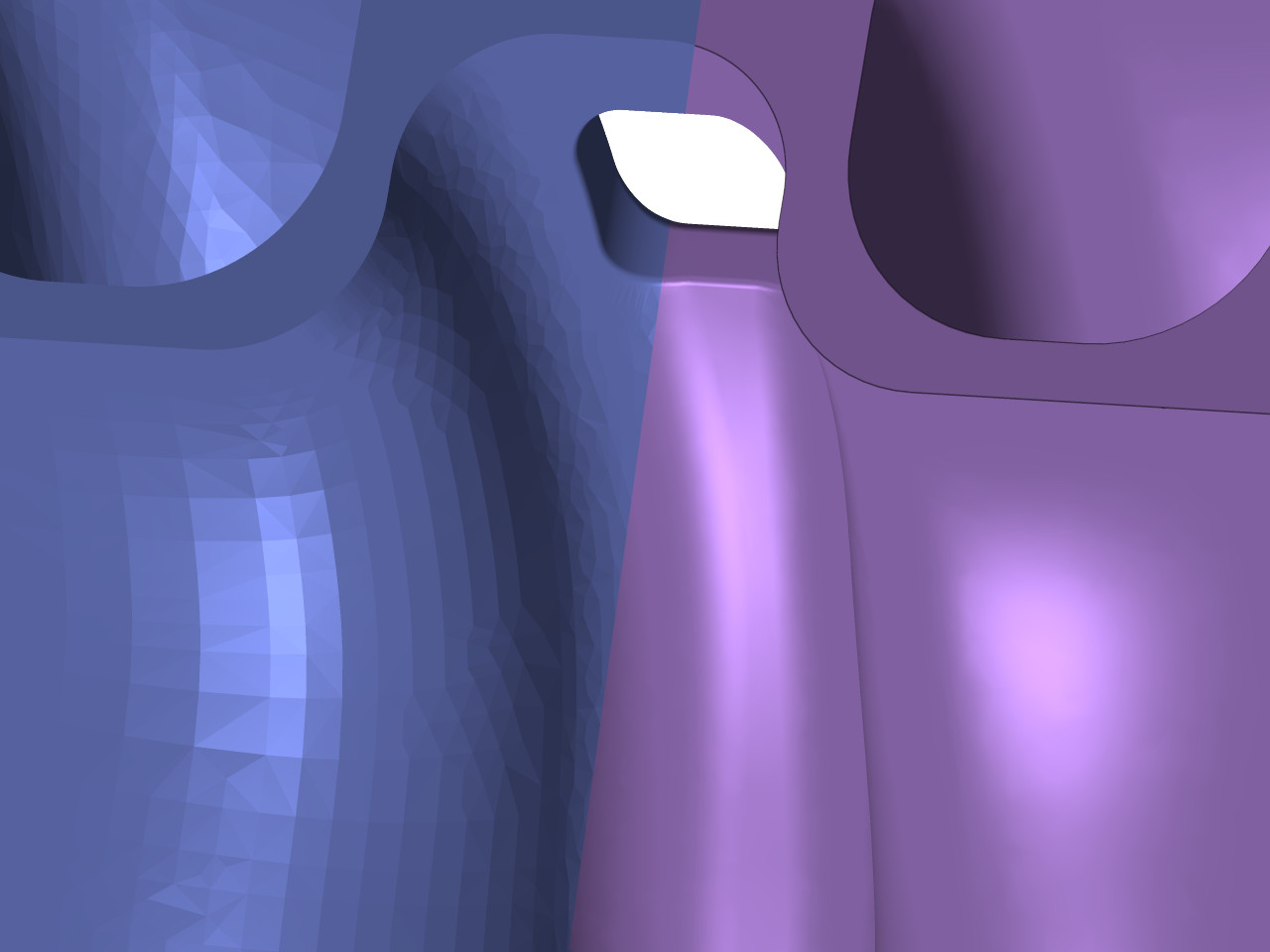
The STL format is still widely used in the engineering field because of its simplicity and due to being compatible with many technical devices, such as milling machines, 3D printers or 3D scanners. However, using the STL format during active process development has many disadvantages. Tesselated model data can no longer be modified properly since the original parameterization is always lost during conversion. Every STL solid is basically just a list of individual triangles. The lack of wireframe data, vertex normals and color information drastically decreases the visual quality of the model. There is not even a mechanism to ensure that geometric bodies are watertight. STL files are generally error-prone due to poorly configured export algorithms and the inherently imprecise nature of triagonal meshes. Nevertheless, Visiometa provides strong support for this format to improve compatibility with older hardware and software. To this end, our software offers a number of helpful algorithms that automatically reconstruct missing information from STL data and repair defective models.
